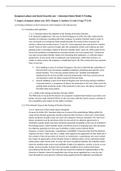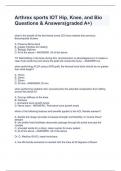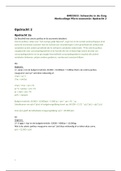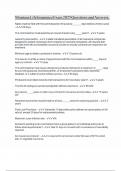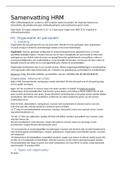T. Jaspers, European Labour Law, 2019, Chapter 2, Sections 2.3 and 2.4 (pp.77-114).
2.3 Posting of Workers in the Framework of the Freedom to Provide Services
2.3.1 Evolution and Legal Basis
2.3.1.1 Situation before the Adoption of the Posting of Workers Directive
In its landmark judgement in the case of Rush Portuguesa of 1990, the CJEU ruled that the
situation of employees travelling with their employer to another Member State in order to
carry out works on a temporary basis would fall under the scope of free movement of
services, rather than workers (paras 17 and 19). Its key argument here was that the ‘workers’
would “return to their country of origin after the completion of their work without any time
gaining access to the labour market of the host Member State” (para 15). With regard to the
terms and conditions of employment of posted workers, the Court stated that “Community
Law does not preclude Member States from extending their legislation, or collective labour
agreements, to any person who is employed, even temporarily, within their territory, no
matter in which country the employer is established”(para 18). This evolved into two separate
lines of case law:
First, building on para 15 of Rush Portuguesa, the Court ruled that the authorities of
the host State may not impose conditions relating to obtaining work permits, since
posted workers. This is because posted workers are “lawfully and habitually”
employed by the service provider and only temporarily in the host country and are
not deemed to enter the labour market of the host State.
Second, building on para 18 of Rush Portuguesa and concerning working conditions
of posted workers, a comparison of labour law protection in the host State and in the
sending State should be made. If the protection is the same, the labour standards of
the latter State have priority.
2.3.1.2 Birth of the Posting of Workers Directive (PWD)
The PWD aims to reconcile the exercise of companies’ fundamental freedom to provide cross-
border services under Article 56 TFEU, on the one hand, with the need to ensure a climate of
fair competition and respect for the rights of workers.
2.3.2 The Material Scope of the Posting of Workers Directive
2.3.2.1 Hard Core of Host State Labour Standards
Pursuant to Article 3(1), Member States are to ensure that undertakings falling within the
scope of the directive guarantee workers posted to their territory a ‘hard core’ of host State
labour standards, though it does not cover the substance of those standards. The ‘hard core’
labour standards must be laid down either by law and/or by collective agreements or
arbitration awards which have been declared universally acceptable in the case of activities in
the building sector, while Member States are left the choice of imposing such rules laid down
by collective agreements in the case of activities in other sectors (Article 3(10)).
However, in Laval, Commission v Luxembourg, and Rüffert, it become clear that the directive
imposes not only a ‘floor’ but also a ‘ceiling’ with regard to the application of host State law in
the context of intra-EU provision of services. In Commission v Luxembourg, the Court curbed
the margin of appreciation of the Member States in defining what is to be understood under
public policy under Article 3(10). In Laval, the Court considered whether the collective action
taken by Swedish trade unions was justifiable in light of its objective, namely, to force a cross-
border service provider to grant more favourable conditions to its workers than those
prescribed by the directive. The Court did not accept the method of implementation of the
directive in Sweden, where the applicable rates of pay were negotiated on a case by case
basis through the social partners without being supplemented by legislation providing for
, universal applicability; it concluded that this leads to a climate of unfair competition between
national and posting service providers. In Rüffert, finally, the Court ruled that Lower Saxony
could not prescribe the application of a regional collective agreement only covering a part of a
given sector.
2.3.2.2 Comparing ‘Host’ and ‘Home’ Labour Standards
Article 3(7) provides for the so-called ‘favour principle’ as a guarantee that host labour
standards only apply when working conditions in that Member State are better than in the
‘home country’. However, it is not clear how the minimum rates of pay in the host state
should be interpreted and how this should be compared with the level of wage actually paid
by the service provider to the posted workers. In Sähköalojen ammattiliitto, the Court pointed
out that “the minimum wage calculated by reference to the relevant collective agreements
cannot be a matter of choice for an employer who posts employees with the sole aim of
offering lower labour costs than those of local workers” (para 41). It moreover gave a broad
interpretation of the freedom for host States to include in the minimum rates of pay specific
allowances in order to make up for their being posted. Finally, depending on the subject
matter of their labour law entitlements, as defined in Article 3(1), posted workers belong both
to the host and ‘home’ country. Regarding wages, working time, safety at work and other
(minimum) labour standards, the posted worker is guaranteed protection by the host State.
2.3.3 Personal Scope of the Posting of Workers Directive
2.3.3.1 Concept of ‘Posting’
With regard to the concept of ‘posting’, the directive covers three different types of posting
which are described in Article 1(3): (a) posting to carry out service contracts in the context of
transnational subcontracting; (b) transnational intra-company transfers, and; (c) transnational
temporary agency work. The provision states that in all three cases, there must be a link to a
cross-border service provision that is temporary in nature. This has two aspects. First, the
posting should be connected to provision of a cross-border service in the meaning of Article
56 TFEU (as defined in Article 1(1) of the directive). Second, Article 1(3)(a) and (c) require in
two of the three situations that there must be service contract between the employer and a
recipient established or active in the country where the service is performed.
2.3.3.2 Concept of ‘Posted Worker’
The concept of ‘posted worker’ under Article 2(1) is defined as a worker “who, for a limited
period, carries out his work in the territory of a Member State other than the State in which he
normally works”. This resembles Article 8(2) of the Rome I Regulation (see Section 2.4).
2.3.3.3 What is Temporary?
So far, in the case law of the CJEU, no limitation in time to the temporariness of a service
provision has been accepted. In Rush Portuguesa, the temporary character of posting was
linked to the duration of the services abroad. In Gebhard, the temporary nature of the
activities has to be determined in the light, not just of the duration of the service provision,
but also if its regularity, periodical nature or continuity. Still, this has not been applied
consistently by the Court (see Trojani and Schnitzer).
2.3.3.4 Labour Market Access?
In Rush Portuguesa, the Court made a distinction between migrant workers who enter the
labour market of the host state and posted workers who generally do not. The employer of a
posted worker makes use of the free movement of services. The posted workers do not need
to avail themselves of the free movement of workers, because according to the Court, they do
not seek access to the labour market of the host Member State, but will instead immediately
return to their home State once the service is carried out. This distinction between ‘Article 45’
mobility and ‘Article 56’ mobility has an impact on the labour law protection of the workers


